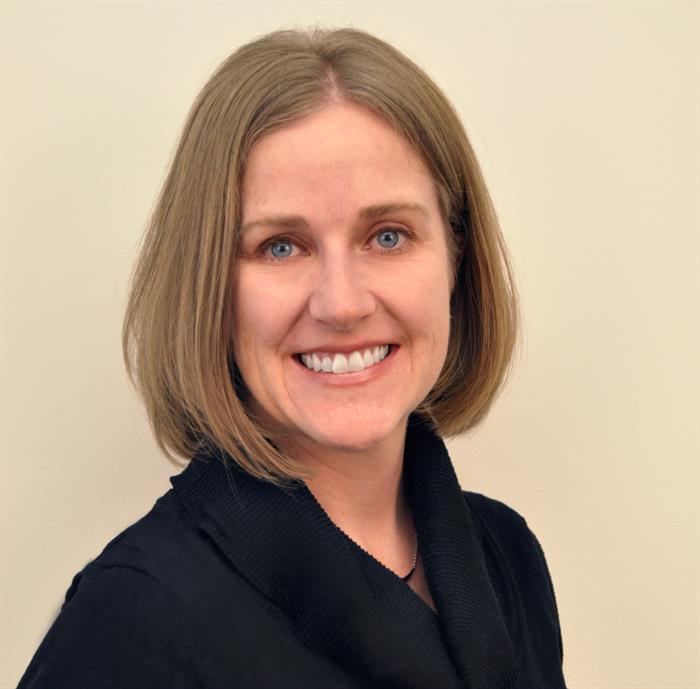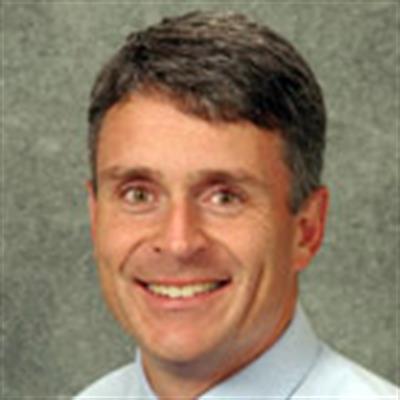Investigator Spotlight
5 Questions for Researchers

Stacie Daugherty, MD, MSPH
Associate Professor of Medicine, Division of Cardiology at the University of Colorado School of Medicine
General Cardiologist and Investigator, Colorado Cardiology Outcomes Research (CCOR) at ACCORDS
Stacie Daugherty, MD, MPSH is an associate professor of medicine in the Division of Cardiology at the University of Colorado School of Medicine. She is a general cardiologist and researcher in the Colorado Cardiology Outcomes Research (CCOR)
group at ACCORDS. Her research is focused on defining, understanding and working to eliminate disparities in cardiovascular care. Her work bridges the fields of social psychology and health services research in order to execute interventions
aimed at reducing or eliminating disparities in cardiovascular care.
1. Why is your area of science important?
Broadly, my research focuses on defining and testing interventions to reduce health disparities. I have been particularly interested in the potential role of clinician stereotyping
and bias in medical decision making. Stereotypes are a normal mental process of organizing information in our minds – they help us create mental generalizations about attributes, differences or roles of particular groups of people. Not all stereotypes
are negative. For example, women are generally perceived as being kind and caring. However, stereotypes can lead to bias when these over generalizations influence medical decision making in a negative way. In a large national survey, we
demonstrated that the majority of physician participants held implicit (unconscious or automatic) gender stereotypes suggesting they are more likely to view men as being stronger and more likely to take risks than women. Participants with these biases
regarding men being greater risk takers were less likely to recommend a procedure associated with risk in a woman than man patient suggesting gender stereotypes can differentially influence some treatment decisions. More recently, I have moved my
research program from describing disparities to testing interventions to reduce disparities. We are currently evaluating an intervention aimed at helping patients overcome the negative effects of bias on their health outcomes.
2. What was important in your Health Services Research training?
The most important aspect of my training has been working with dedicated mentors and diverse teams. My excellent mentors have invested in my career development
and instilled a desire in me to nurture the careers of junior investigators dedicated to careers in disparities research. I am not formally trained as a social scientist and my area of inquiry largely relies on social science theories and methods.
Therefore, I have had the great fortune of developing strong collaborations with social scientists throughout the University of Colorado system to expand my understanding of health disparities and inform unique approaches to address them.
3. What are the major take home messages your current research provides?
The contributors to health disparities are multifactorial and approaches to address them require a multidisciplinary approach. Our work and others suggest bias
may influence clinical decisions in situations where there is more subjectivity (e.g. symptom interpretation) or under time pressure (e.g. medical emergencies), and be less likely when specific recommendations exist or in established patient-clinician
relationships. More research is needed to understand the conditions under which biases play a role in clinical care and how best to address them.
4. What are your goals or areas for future research?
The gap between scientifically proven healthcare interventions and their successful implementation in the real world is a significant barrier to reducing health care disparities.
My goal is the expand my research program from a descriptive and explanatory approach to develop new skills in pragmatic implementation and dissemination. I have begun working with the internationally recognized Dissemination and Implementation Science
group at ACCORDS. By expanding my skills in this area, I hope to address a critical need to train and mentor the next generation of health disparities and implementation science researchers.
5. What advice do you have for researchers who want to work in this area?
I think the most salient advice I have received along the way is that you need to like what you do and enjoy who you work with. The funding landscape is difficult and grant reviews can feel arbitrary; surrounding yourself with others who share your
passion and/or support your development are key to weathering recurrent rejections. I would also encourage researchers to reach beyond your primary field – new perspectives can help you expand on your work and distinguish yourself in your
field. Be open to new collaborations: Be generous to others; and Be appreciative of those who have helped you.

Section Head, General Academic Pediatrics University of Colorado Anschutz Medical Campus
Co-Chair, Standing Committee on Patient Experience and Function of the National Quality Forum
Membership Chair, Executive Committee of the Council on Children with Disabilities of the American Academy of Pediatrics
Investigator, Adult & Child Consortium for Health Outcomes Research & Delivery Science (ACCORDS)
Principal Investigator, CYSHCNet
Christopher Stille, MD, MPH is Section Head of General Academic Pediatrics at CUSOM, leading the group of roughly 60 pediatric faculty whose focus is on primary care. His research focuses on improving systems of care for children and youth with special health care needs (CYSHCN). He has a particular interest in improving coordination of care between primary care clinicians, subspecialists and family members, using the Medical Home model of care. He has led projects funded by HRSA/Maternal and Child Health Bureau (MCHB), the Robert Wood Johnson Foundation, the Lucile Packard Foundation for Children’s Health, and local and regional funders to pursue this investigation. Since 2017, he has been Principal Investigator of a MCHB-funded national network to conduct health systems research for CYSHCNz: CYSHCNet. Dr. Stille is a co-chair of the Standing Committee on Patient Experience and Function of the National Quality Forum, is Membership Chair and a member of the Executive Committee of the Council on Children with Disabilities of the American Academy of Pediatrics, and has been a member of several expert panels convened by HRSA/MCHB on topics including establishing an evidence base for the Medical Home and access to pediatric specialty services for CYSHCN.
1. Why is your area of science important?
Health systems research for children and youth with special
health care needs CYSHCN is important because CYSHCN represent one in five
children nationally, utilize the lion’s share of healthcare resources, and
experience care that is poorly coordinated and integrated, similar to their
adult counterparts with chronic conditions. We have enormous opportunities to
improve healthcare for CYSHCN and their families.
2. What was important in your Health Services Research training?
The most important thing in my health services research
training was connecting with role models and mentors around the country who
could help me focus my questions to those most important to the health of
CYSHCN and their families, figure out how to address those questions, and find
funding for projects to undertake this work. Learning the importance of parent
and family involvement in healthcare improvement at a very early stage of my
career was also critical.
3. What are the major take home messages your current research provides?
Major take home messages from my work include: 1)
integrating different parts of the healthcare system for CYSHCN through good
communication and collaboration is incredibly difficult, but essential to the
provision of good care; 2) family research partners are worth their weight in
gold; 3) enhancing the quality of primary care is very important to the
Quadruple Aim of healthcare improvement; 4) network research is important,
difficult, and fun.
4. What are your goals or areas for future research?
Goals for future research are to better measure healthcare
outcomes for CYSHCN, undertake nationally generalizable intervention research
to improve the care of CYSHCN in multiple areas, and inform policies that
enable better integration of care in the US health system for children.
5. What advice do you have for researchers who want to work in this area?
Advice I would have for researchers in this area includes:
1) Network and collaborate- there is safety and success in numbers; 2)
Diversify your “academic portfolio”- if one area is going slowly, work on
others for a while; 2) Be persistent to the point of madness in your academic
work- projects to answer great questions can take many years to come to
fruition; 3) never lose touch with your mentors and never stop finding new
ones.